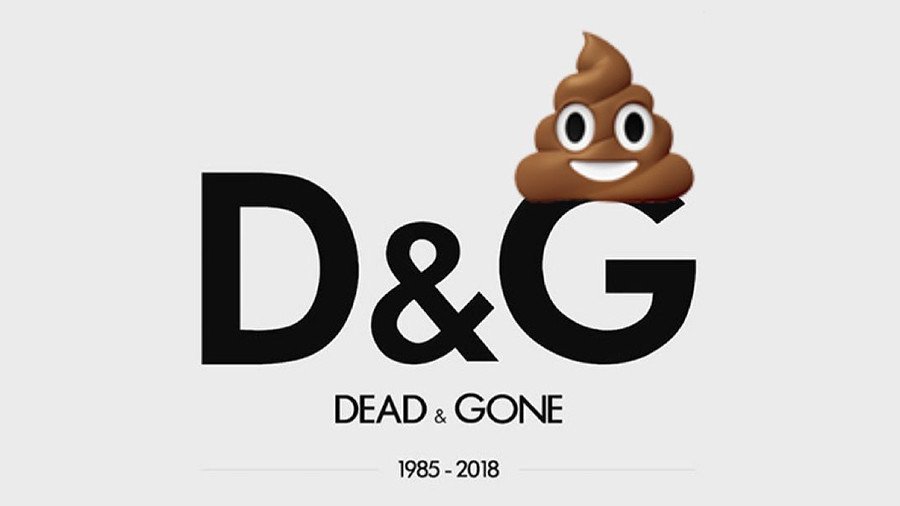Dolce & Gabbana dumped by Chinese online retailers over racist ads & posts

China’s e-commerce platforms have removed Dolce & Gabbana products from their websites after its ad campaign was deemed racist and an alleged post by the company’s founder claiming “ignorant, dirty” Chinese people eat dogs.
The D&G items disappeared from major online retailers, such as Alibaba’s Tmall and JD.com, and pages previously linked to the brand’s products became unavailable. E-commerce platform NetEase Inc and luxury goods retailer Secoo also removed the brand’s listings.
‘Big mistakes in tone and taste’ https://t.co/LAYKuaehMP
— RT (@RT_com) November 22, 2018
Meanwhile, Haikou Meilan Airport Duty Free Shop said it deleted all D&G goods, posting a photo of empty shelves on its social media account.
Accusations of racial stereotyping came shortly after D&G published three advertising clips featuring an Asian woman attempting to eat big portions of Italian food, including pizza, spaghetti, and a cannoli. The videos were posted on the fashion house’s official Instagram account and evoked immediate outrage on Chinese social media with users launching the #BoycottDolcegabbana hashtag.
The spiraling backlash forced the Italian brand to abruptly cancel its Shanghai fashion show which was scheduled on November 21 after numerous celebrities, including Zhang Ziyi and Li Binging, reportedly withdrew from the event. Popular singer Wang Junkai and model Dilraba Dilmurat reportedly terminated their agreements to be the brand’s ambassadors.
The notorious campaign was also posted to Chinese social media platform Weibo. The microblog service deleted the campaign less than 24 hours after it was uploaded. On Weibo, the Boycott Dolce movement has reportedly been discussed more than 18,000 times.
The scandal was exacerbated after the fashion house’s cofounder Stefano Gabbana was accused of posting inappropriate comments on his Instagram account. The posts, which triggered even more anger, featured pile of poo emoji and branded the country as “Ignorant Dirty Smelling Mafia,” claiming that Chinese people eat dogs.
The designer denied he was the person who wrote the Instagram message, and later the brand released a statement claiming that both of its Instagram accounts had been hacked. The fashion house issued a statement, apologizing for “any distress caused by these unauthorized posts.”
Chinese Foreign Ministry spokesperson Geng Shuang expressed hope that the scandal would not become “diplomatic,” while the Communist Party Youth League urged foreign companies working in China to respect the country’s culture and its people.
According to data compiled by Bloomberg, Chinese consumers spent over $100 billion on luxury purchases last year – one-third of the global total.
For more stories on economy & finance visit RT's business section














